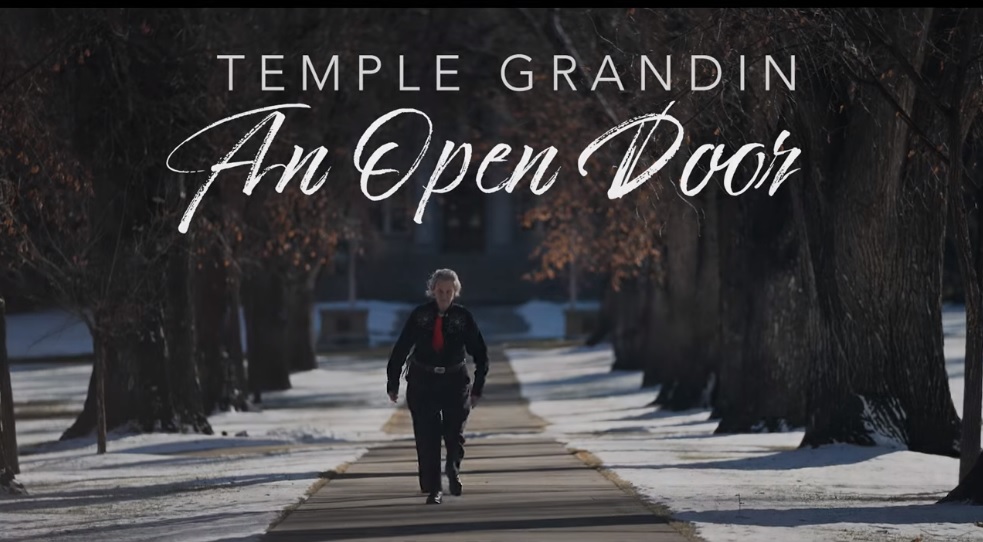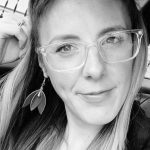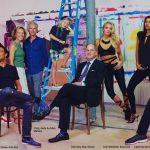There are moments in life when you just feel fulfilled — when wishes come true. Those moments are what life is all about. Chasing dreams, aspirations, and goals. Thinking about achieving the unfathomable. This is the life of Temple Grandin – an American academic, animal behaviorist, and professor of animal science at Colorado State University. Her latest documentary, An Open Door, highlights her incredible contributions to the world and is the story of a beautiful life.
Like so many of us, Temple had wishes, aspirations, and goals. She loved things that could fly and race with the wind. Her resume consists of over 30 years of teaching at Colorado State University’s college of agricultural sciences. She also holds a PhD in animal sciences from the University of Illinois. She’s published multiple books and numerous research papers and can be seen on stage speaking to large audiences.
Her zest for life is so incredible. How she perceives things, though in a different way, and how she works is absolutely awe-inspiring. But what makes her so special?
An Autistic Child Who Breaks Barriers
When you think about college professors, you expect them to be educationally accomplished throughout the duration of their lives. But with Temple, the case was different. As a child, Temple had all of the symptoms of autism, like delayed speech and slow reaction time.
Fortunately, she had an incredible mother who refused to conform to societal pressures to put Temple in an institute. Temple’s mom rejected everything related to institutions and instead worked with her daughter to promote what Temple loved doing, which was talking.
Temple went to a speech therapy school where teachers taught out of their house. That’s where her elementary teachers introduced “peer-minded intervention,” something that helped Temple’s classmates understand how to communicate and work with her.
The thing with autistic children is — as Temple quotes — that you have to put in the effort. And Temple did exactly that.
Going to Special School as a Teen
When she transitioned from a child into a teenager, Temple found it hard to adjust to other kids. The constant mocking and name-calling made it difficult for her to navigate through life.
At the age of 14 she struggled on, hunkering under the onslaught. One day she decided she had enough and retaliated by throwing a book at a girl who called her a derogatory name. Soon after the incident, regular schooling was no more and she was moved to a special school where she could thrive.
During her time at the new school, Temple developed an interest in working with cattle. In the 50s, it was normal to work with cattle, livestock, and horses.
Temple loved horses. Everything about them. She would draw them all the time. She also cleaned barn stalls and learned how to milk cows.
Passion-Powered Opportunities and Success
Students in the 50s were more involved with activities that helped them find their passion. These days, students don’t have access to that. That’s why mentorship is incredibly important. Mentors can help students bridge existing gaps and make things easier to understand.
Temple was fortunate enough to have some amazing mentors by her side. This is how Temple was able to set her sights on achieving one goal: to become a scientist.
From a young age, Temple was different. She would sit with her grandfather, an MIT-trained engineer, and learn about things like why the sky was blue. Even though she struggled with subjects like math and statistics, it never stopped her from producing great results.
But back in the 50s, it was difficult being a woman who had strong interests, let alone being an autistic person with strong interests. However, Temple stood out because she was “just something else,” according to her employer, Jim Uhl.
Temple knew it was important to be really good at what she did. She used her passion for drawing to help navigate this path.
“Temple has really shown that women can do anything a man can do, and especially when it comes to animal welfare, a lot of women do it better,” said Janet Riley, Temple’s co-worker.
Temple was great at recognizing opportunities and seizing the moment. So, when the editor of Farm Arrangement Magazine walked into one of the farms by sheer luck, Temple did not hesitate to approach her. That little step was a huge turning point in her career.
She set aside her fears to talk to the editor, which led to a writing offer — a summary of Temple’s thesis. Temple might’ve been terrible at algebra, but she had great writing skills. That’s how she became a livestock editor and got to talk about her story.
Visual Thinking and Care Got Her Results
Temple made it. Now, she can enter through VIP entrances with all the protocols, something her teenage self could have never dreamed of. Everything she has worked for brings results, especially to the cattle industry. Cattle today are much calmer than the cattle 25 years ago, all thanks to her way of screening them.
With her experience and help from Jim Uhl, Temple was able to set up her business. She’d draw, sketch, and just do basic layouts of her vision. As a visual thinker, Temple was able to picture everything the cattle would see as well as understand how they felt and how they reacted.
Her peers describe how she would just lay on the chicken ramp and look up at what the chickens were looking at. She always tried to understand the animal view on things instead of imposing our human view.
Temple sees cattle as they are. She acknowledges that they feel pain. They’re not rocks. The only difference is the size of the computer, i.e., the brain. And that idea has been at the forefront of her work.
Breaking Expectations by Doing Things Differently
People often ask Temple: Why cattle? Here’s the thing: there’s so much going wrong with cattle in the industry. For instance, cattle are being genetically modified to produce more and more meat. This is ruining their genes and has started to cause issues.
That’s one of the biggest dilemmas the world faces today, and Temple wants to improve it for future generations. In fact, Temple Grandin is always on a learning spree. Getting up and getting things done is what she yearns for the most, in order to avoid stagnancy.
When she was younger, Temple would look for unusual mysteries. But as she’s grown older, she finds it more important to work on things that bring about good and open doors of opportunity. Her co-workers never doubt her vision. She does things differently, but she gets them done.
“People who get an autism diagnosis, they were told your child will never work, your child will never work independently.” Dr. Marlo Payne Thurman. That’s what Temple has changed. The narrative is about autistic kids and how they can achieve anything they love.
And the fact that Temple worked against all odds and achieved what she did while being an autistic woman is absolutely amazing.
Temple now encourages parents to give their children experiences she had, like how she found her passion for horses. Autistic kids won’t understand what they like or hate if they don’t get hands-on experiences.
That’s why Temple started the Temple Grandin Equine Center. It’s about going out and seeing and doing things. She helps visual thinkers figure out if they’re good with animals, which they are since animals live in a sensory-based world, not a word-based world.
Sharing Her Experiences with the World
“Thinking in Pictures” is Temple’s contribution to making people like her heard. Betsy, her editor, describes how she would edit the book and just look at the same repetition over and over again.
She then understood that Temple’s thinking process was so different. She’d never be insulted when Betsy would send for a revision, for Temple didn’t care.
“I call it chunk editing. She changed the order of the chapters. She said it was the hardest book she ever edited, but probably one of the most important books she ever edited,” remarks Temple.
During the lockdown, Temple and Betsy started on yet another journey of writing a book, “Visual Thinking.”
For verbal thinkers, it’s important to understand the mechanical concept. And that’s how she explained her thinking through concepts to Betsy. And that’s what Temple hopes to achieve within this book: To explain that not all people think in the same way and reach a broader audience and not just the autistic community.
She Wants to Make a Difference in the World
“She’s not interested in fame for fame’s sake. She’s not interested in money. She’s just interested in making a difference in this world.” — Janet Riley.
Today, when Temple walks into a room, everyone wants to talk to her. When someone approaches her on what they want their autistic child to be, she replies with, “Yeah, they can do anything.”
In that sense, Temple is like the godmother for autistic kids. She’s the icon for what autistic kids can and should be. But she doesn’t realize the magnitude of the change she’s brought into this world and the legacy she has set in motion.
Temple is interested in helping autistic kids and making them see the limitless opportunities. No one could’ve ever predicted that a autistic women would come along and transform how we see animals and how we look at autistic children.
She knows it’s nonsense to expect everyone to be good at everything. So, she advocates for promoting the interests of your children. It’s pretty obvious, but it’s just not done enough in our education system.
Improving Everything One Step at a Time
“I love what she says about how she couldn’t get into veterinary school, and now she teaches vets.” — Betsy Lerner.
She thinks the biggest downgrade schools have gone through is not providing hands-on experience through classes like cooking, sewing, and just going out and working. And we see the results now: students are less motivated and feel like they have no purpose in life.
When Temple sees kids on the autism spectrum do well, it makes her really happy because that’s her purpose: to continue teaching and to ensure that everything she has built never stops.
As a person, she just brings so much joy into the room, especially when she’s laughing about jokes. And she always lives by this quote: treat others the way you want to be treated. That’s what makes her so humble despite all that she’s achieved.
She’s made so many differences in her students’ lives, including Dr. Kurt Vogel. To him, it felt like he knocked on the door, and she answered and made a huge change in his life. She’s so resilient and says she’ll continue teaching, traveling, and just being there till the final moment. Her underlying theme is to make the world a better place.
Temple’s entire life is so inspiring. Full of purpose. Living in service to others. She will be an inspiration for generations to come.
An Inspiration the World Looks Up To
“I don’t think my teenage self would believe it. I don’t think they would. But it’s always step by step.” — Temple Grandin.
The Temple Grandin, who once got eye rolls for walking into a room, now has the entire room looking up to her. What an amazing achievement. She knows the responsibility she has, and she owns up to it. Whether she gets stopped at the airport or anywhere else, she’ll be there to inspire the people who reach out to her.
You can watch Temple’s latest documentary called An Open Door, directed by EMMY Award Winning Cinematographer John Barnhardt of Barnfly Productions, at the upcoming Denver Film Festival. Barnardt, a Colorado State University alumni, captures a side of Temple the public doesn’t get to see. The majority of the production on the film was handled by work study students, alumni, and faculty of CSU. You’ll want to bring your tissues with you for this one! This film is definitely a tear jerker and will leave you with a feeling of hope and a knowing that there is still beauty in this crazy world.
Show times are Tuesday November 7th at 7:00pm and Tuesday November 9th at 4:30pm at the Sie Film Center at 2510 E Colfax Ave, Denver, CO 80206.
For Tickets Go To: https://denverfilmfestival.eventive.org/schedule?gclid=CjwKCAjws9ipBhB1EiwAccEi1DVrO-ZbrdRNF6D1VVwVhwGJuiR3Rerz8EKF5ItAymRmOEYlJPo7PBoC-R4QAvD_BwE&date=2023-11-03







